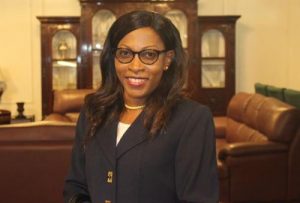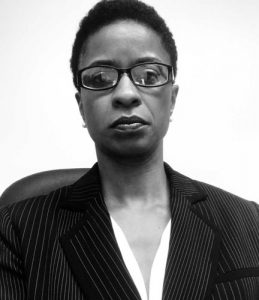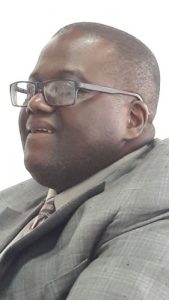One of the Judicial Reform and Institutional Strengthening (JURIST) Project’s objective is to improve the capacity of judicial officers to use a gender perspective in their adjudication of family law and gender-based violence cases.
With this is mind, the JURIST Project partnered with the Caribbean Association of Judicial Officers (CAJO), UN Women and the Judicial Education Institute of Trinidad and Tobago (TTJEI) to deliver a 3-part Train-the-Trainer Gender Responsive Adjudication Training for judicial officers. Ms. Jacqueline Sealy-Burke, Training Consultant, produced a Needs Assessment Report and a Train-the-Trainer Manual in November, 2017.
The training had two main objectives. Firstly, it sought to build the capacity of judicial officers to be more gender sensitive in the adjudication of family law and cases involving gender-based violence. Secondly, it also aimed to increase judicial officers’ competence in applying the Gender Equality Protocols in their day-to-day adjudication.
For Part 1 of the training, three training workshops were conducted: one in Trinidad and Tobago (November, 2017) and the other two in Jamaica (December, 2017). Part 2 was held in Trinidad and Tobago in February, 2018 and Part 3 in Guyana in March, 2018. Forty-six judicial officers from five CARICOM countries including Jamaica, Barbados, Trinidad and Tobago, Belize and Guyana participated in the training.
The judicial officers trained, received certification as judicial educators and are expected to champion and roll out the training in their respective jurisdictions.
At the end of Part 3, the judicial officers were asked to submit training plans for the roll out of the gender sensitive adjudication in their respective jurisdictions before March, 2019. So far Jamaica and Belize have submitted draft plans. Jamaica will begin its roll out in July and Belize in October. The TTJEI began its roll-out of the gender sensitive adjudication training on May 25,2018 at its annual Continuing Education Seminar (CES).
The training proved to be very impactful for the judges and magistrates, some of whom offered testimonials as follows:
 The Honourable Mme. Justice Simone Morris-Ramlall, High Court Judge, Guyana
The Honourable Mme. Justice Simone Morris-Ramlall, High Court Judge, Guyana
“Participation in the training has empowered and motivated me to constantly strive to dispense justice from a gendered perspective. It has also created an awareness of how crucial it is to identify and confront unconscious biases and to avoid them infecting my decisions. Reinforcement of the fact that these are access to justice issues renewed my commitment to affording litigants equal access to justice and fair hearings. I am also passionate about sharing the information that I have learnt with other members of the judiciary and with the exposure to judicial education techniques I am poised to do so.”
Her Honour Mrs. Sahai Maxwell-Whittingham, Parish Court Judge, Jamaica
“In January, 2018 I participated in a 3-part training course on Gender Sensitization. Excited and open-minded, the experience from the first session opened my appetite for more learning in the area. I immediately understood why it had to be in 3 parts. The material was beyond relevant and though it provoked thought, it increased knowledge and widened the lens of the judicial eyes. My increased awareness motivated me to be more conscious in my delivery of justice, I felt good that as a young judge with less than a year experience, my approach accorded with some of the recommended approaches in the area. Parts 2 and 3 came with much anxiety as it involved flying. Thanks to a great Jamaican contingency I was able to live through the fear and I am richer in knowledge and awareness at the end of the training. Thanks to the JURIST Project for this distinct opportunity. To quote a colleague ‘every sitting judge should get this training.”
 The Honourable Mme. Justice Jacqueline Cornelius, High Court Judge, Barbados
The Honourable Mme. Justice Jacqueline Cornelius, High Court Judge, Barbados
“Gender justice, gender-based violence and discrimination have been my interest and passion throughout my professional life. On the bench, I have seen with even greater clarity how gender stereotypes can influence outcomes in family and criminal law. The training that I participated in preparation for my role as a judicial trainer of the Draft Gender Protocol has been a singularly transformative experience. I have an entirely new appreciation of my duty as a judicial officer to incorporate a substantive approach to gender equality in every decision I make, and to apply a gender perspective to adjudication fearlessly and with confidence. This training has given me the tools to do so and to teach others how to do the same. I have recognised that this approach is a legitimate part of the judicial function, and that we can transform our societies through our decisions: we are challenged to be not merely judicial craftsmen, but artists.”
The Honourable Mme. Justice Shona Griffith, High Court Judge, Belize
“The training has had a positive impact firstly on my level of awareness of the significant ways in which gender plays a role in the justice system. For example, gender can negatively impact decision making, or operate as a barrier to access to justice. Further, the training provided me with tools, which I can now use to engage in more gender sensitive adjudication. From the training, it was made clear that stereotypes about the socially defined roles of men and women can unconsciously influence decision making, particularly in family/matrimonial law matters or in cases of intimate partner or sexual violence. Additionally, the training revealed disturbing statistics which suggest that intimate partner and other forms of gender-based violence are both under reported and under-prosecuted. As a result, not only is the true extent of gender based violence in our societies misrepresented, but more importantly, the justice system is failing to provide an adequate response. As a judicial officer, and so part of the system, such a situation is unacceptable to me and the training underscores that judicial officers are obliged to be a part of the solution.
The practical benefits of the training included the identification of measures which I can use to improve my adjudication of cases. It is my hope that I will be able to use these gender sensitive measures to improve the dispensation of justice to the general public. For example, my capacity for providing more effective solutions to custody and maintenance cases is now expanded by the benefit of best practices forged not only from collective experiences but also with relevant gendered considerations in mind.
The most valuable take away from the training for me has been the recognition that using a gender lens is not only applicable to circumstances where gender discrimination is at play. Instead, the gender lens is equally relevant to situations where other social statuses or characteristics, such as socio-economic position and sexual orientation, can negatively impact upon the delivery of justice. In the circumstances, the extension of the approach of awareness and mindfulness in decision making to all such factors, will ensure the good of the administration of justice as a whole.”
His Honour Dale E. Staple, Parish Court Judge, Jamaica
“I was asked to participate in this course by the former Chief Justice the Honourable Zaila McCalla. At first, I was a bit sceptical, but was intrigued by the subject matter and especially interested in learning how to be a judicial educator.
At the start of the first session, I was immediately taken out of my comfort zone with the very first exercise. It was a different way of being trained and the disarming nature of the “ice breaker” put me at ease and left me eager to learn more. It was a journey of self-discovery and much was learnt about my own internal biases and how they subconsciously affected my decision making.
The second and third sessions followed and I was given the tools necessary to combat the issues I discovered about myself and I can say that I am a better judicial officer because of this exercise. I feel more confident in my ability to deliver justice to a wider cross-section of persons in an equitable way making all persons feel that they can access justice equitably when they appear before me.
The judicial education aspect of the training was especially welcome to me. I have teaching in my blood and I hope to be able to expand on this area. I look forward to sharing my new-found knowledge with my fellow judicial officers by using the teaching skills I have acquired.
Participating in the course was a wonderful and eye-opening exercise. I met wonderful colleagues from across the Caribbean and I was able to visit other countries. The lessons I have learnt I have already begun to implement and I know that persons that appear before me will leave my Court feeling that they were treated equitably even if they do not get the outcome they desire.”
 His Worship Carl Quamina, Master of the High Court, Trinidad and Tobago Judiciary
His Worship Carl Quamina, Master of the High Court, Trinidad and Tobago Judiciary
“This training unlike others detangled the strands of bias and demonstrated that gender bias tends to weaken the ability of judicial officers to treat litigants with respect regardless of who they are or “are not”. In treating with family matters it has caused me to shift the conversation from “how much do you want?” or “how much can you pay?” to how can the parties work together to meet the needs of the child.
What was of particular interest to me was the interrogation of the notion that the courts should treat all litigants the same. Justice is often depicted as a person whose gives up his/her sight to ensure that no one receives special treatment. Yet it is this very act of becoming blind that leads some court user to feel isolated and excluded. Recent surveys by the Trinidad and Tobago Judicial Education Institute demonstrate that court users are particularly critical of judicial officers who appear out of touch with the realities of the persons we are called to serve. Users complain of too much emphasis being placed on the outcome and not ensuring a fair process; being scolded for failing to understand the language, mannerism and rituals of the court; and inability to fully grasp the legal language of lawyers and judges.
Having done the training my focus has shifted. I have given up my voluntary blindness and now choose to see each litigant who appear before me. I see the young in need of guidance and therapy, the weak in need of extra protection, those in need of simple language and those in need of extra correction or care. I see real people in need of real justice in real time.”






